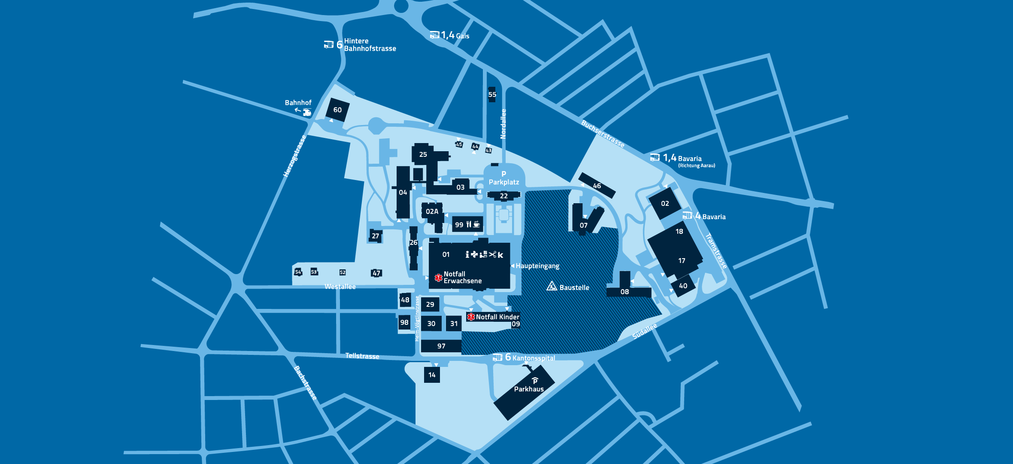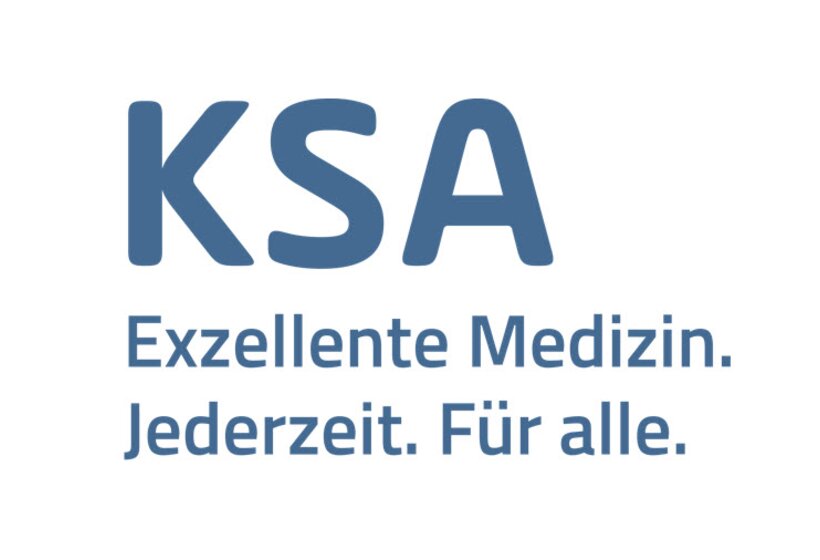Dr. Markus Meier. The Change-Maker Transforming Swiss Medical Systems
1. Januar 2025
Dr. Markus Meier’s professional journey is a compelling testament to strategic leadership and systemic transformation in the healthcare sector.
Beginning his career as a health economist at Novartis International, he developed a sharp understanding of the delicate balance between medical innovation, quality of care, and cost-efficiency within the pharmaceutical landscape. This foundation laid the groundwork for a trajectory that would span key roles across some of Switzerland’s most prominent healthcare institutions.
Following his tenure at Novartis, Dr. Meier transitioned into consulting with PwC, where he advised a diverse range of hospital organizations both domestically and internationally.
His experience there further cemented his reputation as a forward-thinking strategist. He went on to serve as Head of Strategic Management at the University Hospital of Bern,
where he led the historic merger with Spital Netz Bern AG—resulting in the formation of Insel Gruppe, the largest hospital consolidation in Swiss history.
Dr. Meier later became Director of Hirslanden Klinik Aarau, where he successfully transformed the institution into one of the country’s most cost-efficient tertiary care centers. His achievements earned him a promotion to Group General Manager for Operational Excellence at Mediclinic, the hospital group’s parent company.
His decision to take on the role of CEO at KSA Kantonsspital Aarau stemmed from both a personal calling and a desire to tackle a formidable professional challenge. At the time of his appointment, KSA was operating at a financial deficit and required government support. Under the leadership of Dr. Meier and with the unwavering support of the Chairman of the Board, the hospital has undergone a remarkable transformation—gradually restoring its financial stability and reinforcing its position as a leading medical institution. Under his guidance, KSA is increasingly regarded as a benchmark for operational excellence and a beacon of strategic transformation in the healthcare sector.
Let’s delve into the interview details below!
What core vision drives your leadership at KSA, and how has it evolved to meet the dynamic needs of the Swiss healthcare sector?
My core vision for KSA is: “Excellent medicine. Anytime. For everyone.” To me, this is not just a guiding principle – it’s a daily commitment we strive to live up to, in clinical quality,
human interaction, and financial responsibility.
The Swiss healthcare system is facing immense pressure: rising costs, workforce shortages, increasing regulatory interventions, and the accelerating pace of digital transformation all call for new ways of thinking and leading. In this environment, I see leadership as a proactive force – one that embraces change with courage while respecting the essential values at the heart of any hospital: trust, competence, and reliability.
Our vision at KSA is therefore inherently multidimensional. On one hand, we aim to remain a leading tertiary care hospital with a university-level standard of excellence. On the other,
we are continuously advancing a structural and cultural transformation – becoming more agile, efficient, and digital in everything we do.
What are some of the most impactful innovations or digital transformations you've spearheaded recently at KSA?
Innovation begins with mindset – and it must be demonstrated from the top. It is not just about adopting new technologies; more fundamentally, it’s about embracing a culture of
curiosity, the courage to challenge the status quo, and the commitment to explore new paths together. Shortly after assuming the role of CEO at KSA, I implemented a key structural innovation by streamlining the executive leadership team to six members, each with clearly defined responsibilities. This leaner organizational structure has significantly improved our ability to make decisions in a more focused, agile, and timely manner. Equally important to me is that we don’t just discuss innovative approaches – we apply them in practice. For
example, we have adopted principles of meta-leadership and complex problem solving to better manage multifaceted challenges through collaborative and adaptive leadership.
In the field of digital transformation, KSA is beginning to set benchmarks. We are pioneering the use of AI-supported diagnostics and deploying smart administrative assistance
tools such as chatbots and digital interpreters. To accelerate these efforts, we established a dedicated AI unit that continuously develops, tests, and implements new digital
solutions aimed at improving both patient care and operational efficiency.
How have you navigated the challenges of regulatory change, digital disruption, and patient expectations in recent years?
The regulatory changes of recent years demand a high degree of adaptability and a deep understanding of the legal framework in order to ensure full compliance without
compromising our operational performance. Digitalization and technological innovation present tremendous opportunities—but they also pose significant implementation challenges. At KSA, we have responded by consistently investing in our digital infrastructure, implementing advanced IT solutions, and expanding our telemedicine offerings. These efforts will remain a strategic priority going forward. At the same time, patient expectations continue to rise. People now seek not only the highest standards of medical care, but also greater transparency, convenience, and a more personalized experience. In response, we have developed patient-centered services and communication channels that cater to individual needs and actively promote patient engagement throughout the care journey.
How is KSA contributing to broader societal and environmental goals in the healthcare space?
Our contribution begins with a strong commitment to social equity: We ensure access to high-quality, comprehensive, and affordable healthcare for all individuals—regardless of
origin, socioeconomic status, or insurance coverage. From a societal perspective, we actively invest in education and training, support research initiatives, and engage in
partnerships with regional stakeholders, academic institutions, and universities. These collaborations help strengthen the healthcare ecosystem and foster innovation
across the sector. On the environmental front, we pursue a clear and consistent sustainability strategy. Key pillars include energy efficiency, resource conservation, waste management, and responsible procurement. Through these efforts, KSA is taking meaningful steps toward a more sustainable and socially responsible healthcare system.
How have partnerships—with tech firms, universities, or health startups—influenced KSA’s growth and innovation?
At Kantonsspital Aarau, partnerships are a key driver of both growth and innovation. In today’s complex and rapidly evolving healthcare landscape, we believe that progress is only possible through collaboration and the shared development of new solutions. Our partnerships with technology companies allow us to evaluate and implement cutting-edge digital tools and medical technologies early and in a real-world clinical environment. This accelerates our ability to translate innovation into tangible value for patients and staff alike. Through close collaboration with universities and research institutions, we integrate scientific insights directly into clinical practice. These partnerships not only enhance our medical excellence but also strengthen the education of future healthcare professionals and support forward-thinking research initiatives. In the area of startups, we see significant untapped potential.
To better leverage this space, we have recently joined an innovation and startup hub—positioning ourselves to collaborate more actively with emerging ventures and explore disruptive ideas.
What emerging trends or technologies do you believe will most significantly reshape healthcare delivery in Switzerland over the next 5–10 years?
I see several emerging trends and technologies that will fundamentally reshape healthcare over the next decade. At the top of the list is artificial intelligence (AI). AI is increasingly being used in diagnostics, treatment planning, and process optimization. It enables highly personalized medicine that is more precise, efficient, and tailored to individual patient needs.
Equally transformative is the digitization of patient care—including telemedicine, remote monitoring, and digital health platforms—which will continue to expand, making healthcare more accessible and user-centered. Another major trend is the integration and connectivity of healthcare stakeholders—from hospitals and general practitioners to social services. New interoperable systems and shared data platforms will enhance information exchange and coordination across the entire continuum of care. Finally, preventive care and health promotion will gain increasing importance, supported by smart technologies that empower individuals to manage their health proactively. What advice would you offer to emerging professionals aspiring to drive transformation in the healthcare industry? My most important advice to young professionals aiming to shape transformation in healthcare is this: Stay open to change and remain curious. Driving transformation requires a mindset of continuous learning and the flexibility to adapt to new challenges. At the same time, it is essential to keep people at the center of every decision. Technological innovation and process improvements can only succeed if they create real value for patients and empower healthcare teams to deliver the best possible care. Last but not least, transformation requires courage and perseverance. Change often meets resistance, and lasting impact comes from staying the course with vision and determination.


